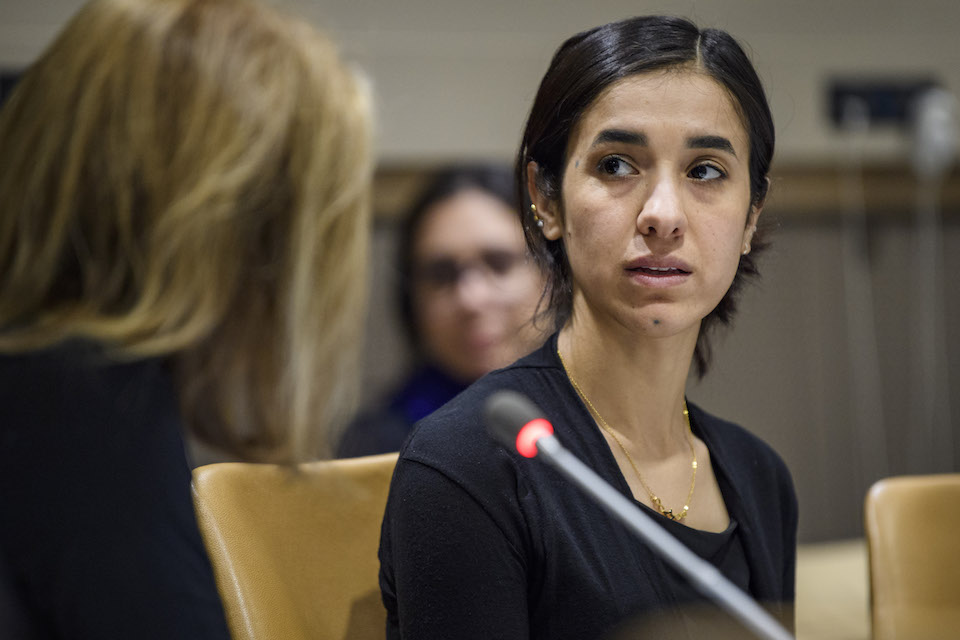Countering extremist ideologies across the globe
Statement by Ambassador James Roscoe at the Security Council briefing on threats to international peace and security caused by terrorist acts

Many thanks, Mr President. Thank you also to our briefers, USG Voronkov and ASG Coninsx for their briefings. Their message was clear: ISIL has not gone away. They remain a present and evolving threat.
And I also want to extend our thanks to you, Mr President, for your stewardship of the resolution on terrorist prosecution, rehabilitation and reintegration, which we hope to adopt shortly. The united voice of this Council in condemning terrorism sends an important message. So we’re very grateful for your courageous efforts.
Turning to today’s debate, the United Kingdom welcomes the Secretary-General’s report on the threat posed by Daesh to international peace and security. We thank the Monitoring Team, CTED and OCT for their work. We have long been clear that the continued Daesh threat emanating from Syria and Iraq poses the most significant terrorism threat to the international community, as well as to the UK specifically. The UK is the leading member of the Global Coalition to Counter Daesh, and we work closely with the United States and the United Arab Emirates on efforts to counter Daesh’s propaganda.
We are steadfast in our commitment to ensuring accountability for Daesh crimes. Today, we remember the appalling Daesh crimes committed against the Yazidi people in Sinjar six years ago. We strongly support the work of UNITAD and in June, in conjunction with Nadia Murad, we launched the draft Murad Code to ensure investigation into sexual violence crimes is safer, more ethical and more effective.
We noted the report’s findings on the intersection between Covid-19 and counterterrorism. We provide extensive humanitarian assistance to states and partners to stem the impact of Covid outbreaks in conflict zones. The UK is closely monitoring the worrying Covid situation in Syria, and I urge fellow Council members to do the same.
We note also the report’s points regarding online Daesh propaganda. We stress the need to address the conditions that Daesh exploits to mobilise support and resources. We should be clear that this is not an issue constrained Daesh and its affiliates or splinter groups. The threat from right-wing terrorism has evolved and is growing, as USG Voronkov pointed out. The United Kingdom continues to act to undermine the growth of right-wing extremism and terrorism, including online, through the proscription of these groups in the United Kingdom. And we call on the international community to take a firm stand against all forms of terrorism.
The UK is clear that those individuals who have fought for or supported Daesh, whatever their nationality, should face justice and accountability through prosecution in the most appropriate jurisdiction, often in the region where the crimes took place. The UN should support the international community in the prosecution of Daesh criminals in the region where their crimes have been committed.
I remind the Council that justice mechanisms must be consistent with international law and must respect human rights and the rule of law, as well as ensuring fair trials and due process. This should be the case for all counterterrorism and national security measures undertaken by members of this Council. Under no circumstances should the mantle of counterterrorism or national security be used to justify actions that undermine these principles.
This applies across the world, including in Xinjiang, in China. We remain deeply concerned about the systematic, egregious human rights violations perpetrated against Uyghurs and other ethnic minorities in Xinjiang, which UN experts have said is incompatible with China’s international human rights obligations. Our concerns are shared by other members of the international community, as demonstrated by the recent joint statement the UK delivered on Xinjiang on behalf of the 28 countries at the 44th session of the Human Rights Council in June.
We call on China to allow the Human Rights Commission of the Human Rights Office immediate and unfettered access to Xinjiang.
The UK is clear that such disproportionate, wide-reaching and indiscriminate measures are not an effective means of preventing violent extremism or counterterrorism. Ultimately, they will be counterproductive and exacerbate ethnic tensions and the risk of terrorism.
Mr President, Daesh’s global footprint should remain a significant concern for the entire international community. The UN must continue to play a central role in building states’ capacity to assess the risks posed by Daesh and to counter their poisonous ideology.